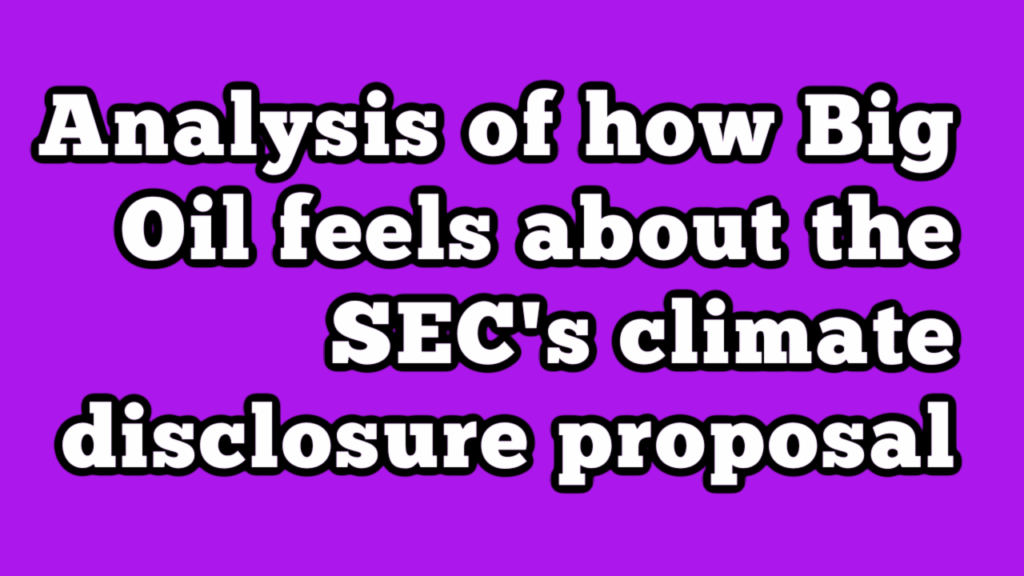Analysis of how Big Oil feels about the SEC’s climate disclosure proposal

– Analysis of comment letters submitted to the SEC on climate disclosure show that there is a split in opinion.
Here’s the intro from this column by Bloomberg’s Tim Quinson:
When it comes to being upfront with shareholders about the risk climate change poses to its survival, the oil industry—whose products are the key driver of global warming—is deeply divided. On one side, there are industry trade groups like Western Energy Alliance, which insist on denying the science of global warming (and certainly won’t concede its members’ role in it). On the other, there are Big Oil companies like Chevron Corp., which contend they are open to providing more information about how the climate crisis is affecting their bottom line.
These contrasting positions have been made plain in comment letters sent to the U.S. Securities and Exchange Commission. The regulator is soliciting feedback as it considers rules mandating what companies must make public regarding the financial risk of environmental, social and governance compliance. In a world that is moving steadily away from fossil fuels, it’s safe to say the risks faced by Big Oil are great.
Possibly the most aggressive memo was sent by the Western Energy Alliance, in conjunction with the U.S. Oil and Gas Association (USOGA), another industry trade group, according to researchers at Documented, which reviewed more than 580 submissions sent to the SEC. In it, these oil-funded organizations assailed the SEC and its effort to impose ESG reporting requirements, and even questioned “the extent of anthropogenic contributions” on the environment, despite the settled scientific consensus that burning fossil fuels is the main cause of accelerating, catastrophic climate change. Their position was broadly supported by right-wing organizations including the American Enterprise Institute, the Cato Institute and the Heritage Foundation.
What the SEC is pursuing would expand “its regulatory authority beyond investor protection and capital formation,” executives from the two oil trade groups claimed in their June 11 letter. “Implementing a comprehensive ESG disclosure framework would be yet another step into redefining the mission of the commission without congressional authority.” The National Mining Association struck a slightly more modulated tone. While the coal industry trade group doesn’t question established climate science, it mainly opposes the enactment of new rules. “The SEC shouldn’t create a one-size-fits-all, prescriptive, rules-based mandatory disclosure program given the breadth and scope of information already provided on a voluntary basis,” the NMA wrote in its 12-page letter.
